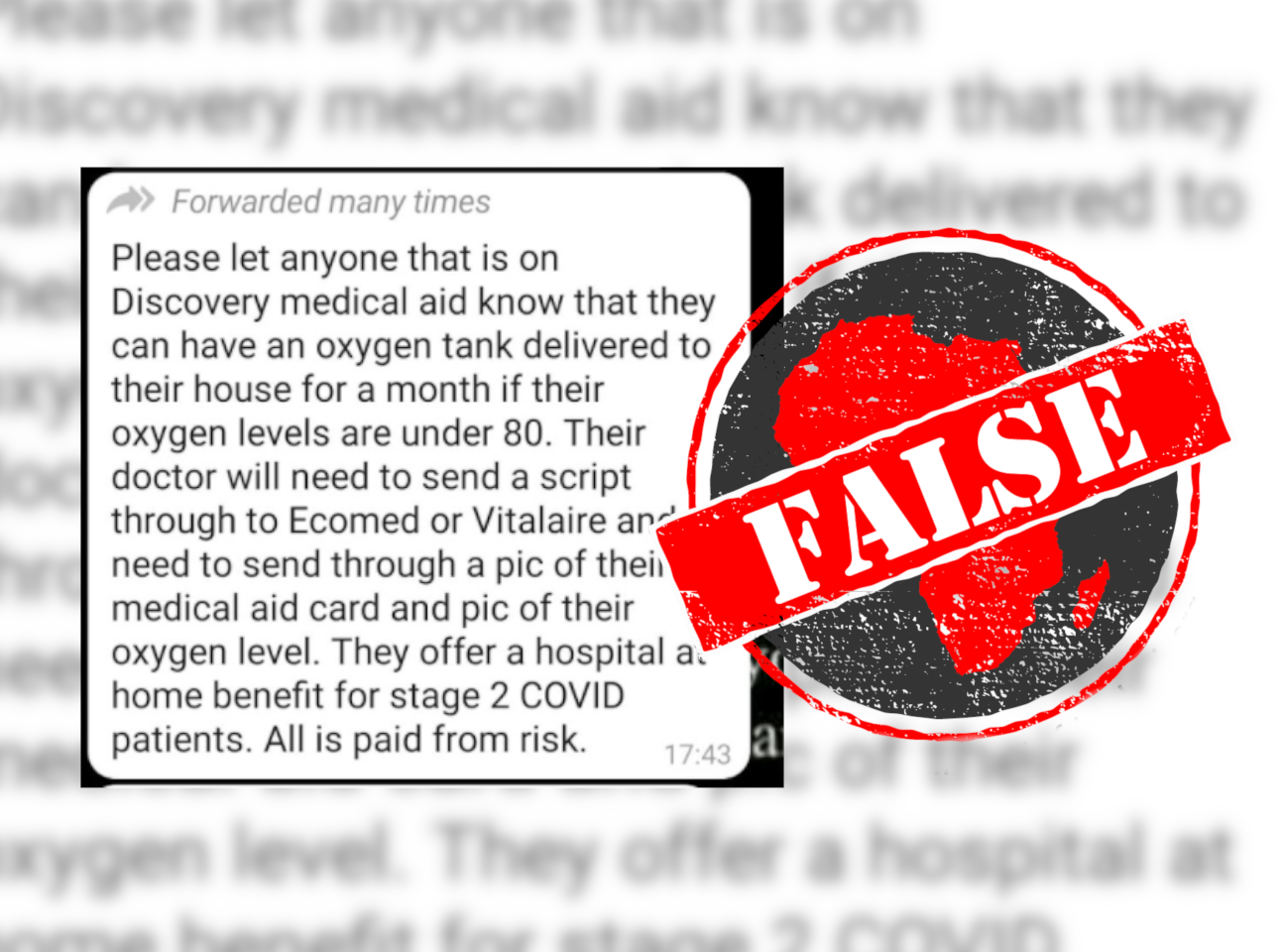“Please let anyone that is on Discovery medical aid know that they can have an oxygen tank delivered to their house for a month if their oxygen levels are under 80,” says a viral WhatsApp message. The same message has been shared on Facebook in South Africa.
Discovery Health is a medical aid scheme provider in South Africa. Medical aid “provides financial cover for medical expenses for members who pay a monthly contribution for this cover“, including “healthcare costs such as hospitalisation, treatments and medicine”.
The viral post goes on to say that patients must have their doctors “send a script through to Ecomed or Vitalaire” and photos of their medical aid card and oxygen levels. Then they will be able to access this “hospital at home benefit for stage 2 COVID patients”.
South Africa is in its third wave of Covid-19 infections. The government has raised concerns about the rising rate of hospital admissions which stood at 16,742 on 19 July 2021.
A lack of hospital beds could lead people to use oxygen tanks at home to treat Covid-19. But Discovery Health told us that this claim is misleading.

Discovery Health says post is misleading
Dr Noluthando Nematswerani, head of the centre for clinical excellence at Discovery Health, told Africa Check: “The post that was circulating on social media – Facebook and WhatsApp – about the Covid-19 benefits is misleading, specifically on oxygen levels.”
Oxygen concentrators or cylinders are covered for a one-month period “when a patient’s saturation level is 88% to 90%, as part of the Discovery hospital at home offering,” Nematswerani said.
“An oxygen concentrator must be requested by a medical doctor and oxygen levels measured using a pulse oximeter.”
But “patients with oxygen levels lower than 88% are not suitable for admission in the home setting and are best managed in a hospital facility”, she said.
Patients with oxygen levels lower than 90% should go to hospital
The World Health Organization advises that anyone with an abnormal oxygen saturation level contact their doctor immediately.
“An oxygen saturation of 95 to 100% is normal for healthy children and adults,” says the US Centers for Disease Control.
But patients with an oxygen saturation level below 90% need oxygen therapy and should immediately contact their doctor or go to hospital.
Republish our content for free
For publishers: what to do if your post is rated false
A fact-checker has rated your Facebook or Instagram post as “false”, “altered”, “partly false” or “missing context”. This could have serious consequences. What do you do?
Click on our guide for the steps you should follow.
Publishers guideAfrica Check teams up with Facebook
Africa Check is a partner in Meta's third-party fact-checking programme to help stop the spread of false information on social media.
The content we rate as “false” will be downgraded on Facebook and Instagram. This means fewer people will see it.
You can also help identify false information on Facebook. This guide explains how.





Add new comment